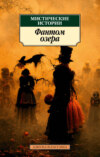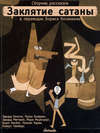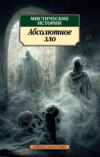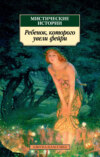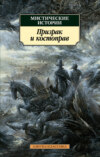Читать книгу: «David Blaize», страница 10
CHAPTER IX
David had been placed in one of the two parallel forms just below the lowest division of the fifth form when he entered Marchester at Michaelmas, but failed to get his promotion at Christmas, and now in the middle of the Lent term he was face to face with the fact that nothing in the world was more unlikely than that he should get out of it at Easter. There would be not more than half a dozen boys out of each remove promoted then, and, as his place was seventeenth in the list of the half-term results lately published, only a first-class miracle, the sort that does not occur, would do it for him.
He had just received a letter on the subject from his father, who, as usual, David thought, failed to grasp the situation altogether. But as David had not dreamed of telling his father what the situation really was, it was not much to be wondered at that the Archdeacon failed to grasp it. But there were things you couldn’t tell your people, and this was one.
At the moment David was reading extracts to Bags from this letter with comments interspersed.
“He must have been an absolute infant phenomenon,” he said, “if he really got his promotion every term, as he says. Nobody does now: it simply isn’t done. And he’s written to Adams about my work, blow him.”
“Bad luck,” said Bags.
“And has asked whether I hadn’t better have a private tutor in Latin in the holidays,” continued the outraged David. “It’s really too sickening, just as if one didn’t have enough of the dreary fellows in the term. And of course I had to lie about what goes on in the form. He asked me at Christmas whether there was any cribbing, and I looked as if I simply didn’t know what cribbing meant.”
“Perhaps nobody cribbed when he was an infant phenomenon,” said Bags.
David scratched his head.
“It’s all rather rotten if you come to think of it,” he said. “I only crib sufficiently myself to get off impots, and very often I run it too fine and don’t crib enough. But I do think it’s rot to crib your way to the top of the form. Cribbing wasn’t meant for that. Plugs got full marks last Euclid lesson, just by copying the propositions slap out of the book. He didn’t have the decency to make a howler or two!”
Bags inserted a lump of sugar in a small hole which he had bitten in the rind of an orange, and began to suck the sweetened juice. He had come on amazingly during this last half-year, and David was no longer in the least ashamed of him as a pal. He wasn’t any good at games, and consequently would have been an entire nonentity in any house except Adams’s. But in Adams’s, so the rest of the school thought, even the juniors took an interest in all sorts of queer things like reading books which had got nothing to do with school work, and knowing the difference between Liberals and Conservatives. Such topics and pursuits were held to be laudable affairs for the occupation of the mind in Adams’s, and the daily paper was not merely the source from which it was discovered who had made a century in a county match. Adams had half the house in and out of his study all day, and the conversation was generally supposed to be of the most abstruse type. An odd thing was, too, that the house was just as keen on games as any other, and was possessed of most of the competitive cups. But, having trained and practised and won their cup, the house did not make this the sole topic of interest and congratulation. This was not the usual plan, and the consideration that Bags had won at Adams’s would certainly not have been his elsewhere.
Bags considered this short disquisition on the proper sphere of cribbing for a little. He himself was in the parallel remove to David’s, where it so happened that no cribbing went on. This was merely a question of fashion, and was as arbitrary and inexplicable as all other fashions, but as binding. Some forms cribbed, some didn’t. Local fashions, not any sense of honesty, directed it.
“’Tisn’t a satisfactory state of things though,” he said. “If everybody cribbed everything, it would be all right, because then everybody would get full marks – ”
David laughed.
“But old Tovey is a suspicious dog,” he said, “and in that case he might suspect something. He’s as blind as a bat, and you can have your crib spread out on the desk bang in front of his nose, and he won’t see it. He didn’t ought to be a beak at all. I put out my tongue at him the other day, right out like that and held it there, and he never saw. I think beaks ought to have their eyesight tested every year or two, like they do for the army to see if they’re competent. He makes up for his eyes by his ears though. If you try to prompt a fellow right at back of the room, he hears like – like a megaphone.”
Bags continued to suck his orange till David had finished and then went on.
“I repeat, if everybody cribbed everything it would be all right,” he said. “And the only proper alternative is that nobody should crib nothing.”
“Oh, ah,” said David. “Case of ‘Jerusalem the Golden,’ as applied to Tovey’s. When we’re all saints we’ll wear nightshirts, ’stead of pyjamas, and golden crowns and bare hoofs – ”
“Don’t be profane,” said Bags. “You’re going to be confirmed.”
David wrinkled up his nose.
“Right oh,” said David. “Lord, do you remember the catechism classes at Helmsworth?”
David finished his father’s letter and tore it up.
“Grown-up people seem to think that we think the same way as they do,” he said. “That’s such rot. We might just as well expect them to think the same way as us. They’ve forgotten about being fourteen, and we never knew about being forty or fifty. Do you remember my pater’s sermon, too, about the chapel being the centre of school life, just because the cathedral is the centre of his? I think he’s forgotten a lot about being a boy.”
Bags had a certain persistency about him.
“Cribbing,” he remarked, “I don’t see why it’s any worse to get full marks for a thing by cribbing than to avoid an impot by cribbing. Either you crib or you don’t. If you crib, why not crib it all? I don’t see that Plugs is a bit worse than you. Blazes, why don’t you tell Maddox all about it? You’re such pals with him, though you are his fag.”
“My word, you do have rum notions,” he said. “It would be sneaking; Maddox always whacks fellows if he finds they crib!”
“But just confidentially,” said Bags.
“Simply imposh!” said David briefly.
The door of their study was open, and at the moment Plugs, the wholesale cribber, came whistling by. His real name was Gregson, and he was freckled. He put his head in and said “Frowsy beasts,” for no particular reason except that he felt cheerful.
“I say, Plugs, come in a minute,” said David. “Have – have one of Bags’s oranges?”
“Don’t mind if I do,” said Plugs politely, “that is, if Bags doesn’t mind. What’s the row?”
“Oh nothing, but we’re just jawing about cribbing. Thought you might help.”
“Not much to jaw about,” remarked Plugs. “It’s a dead cert that nobody ever got out of Tovey’s without, if you mean that. Why?”
“That’s your mistake,” said Bags. “If nobody cribbed, fellows would get out of Tovey’s just the same.”
“Didn’t say that,” said Plugs, “and the mistake’s yours. I said nobody ever had got out of Tovey’s without cribbing. No more they have. What would happen if nobody cribbed, ain’t the question. Every one always has cribbed in Tovey’s since the year one. You can’t help it with an owl like Tovey. Blazes cribs, and he’s three-quarters way down. Where’d you be without it, Blazes?”
“Bim,” said David promptly.
“There you are, then! Can’t think why you don’t crib more, and get higher.”
“But it’s such silly rot,” said Bags. “You’ll crib yourself into the lower-fifth some time. Nobody cribs in lower fifth. Where’ll you be then?”
“I shall be in the lower fifth,” remarked the astute Plugs. “That’s what I crib for. Then I shall stop cribbing, and we all start again fair. Besides, there’s a sort of sport in cribbing. You may always be nabbed. It – it sharpens the faculties. Oh, there’s a lot to be said for it!”
“It would sharpen them just the same to learn your work,” said Bags.
“It might, but it would take longer. I can learn a thing in half the time if I use a crib. I say, Blazes, there’s extra confirmation class this evening. Whole of the second part of the catechi.”
“Oh, blast!” said David.
Plugs got up and left an arid orange-skin on the table.
“Jolly good orange,” he said. “And now I’ve got a squash court. Want to play?”
“Can’t, with this extra confirmation-racket,” said David. “Don’t know a word of it.”
“Crib it,” said Plugs. “It’s quite short, though tricky. Just like the third hole on the links. Lots of little bunkers.”
David jumped up.
“Yes, I think I will,” he said. “I’ll do catechi after dinner. I’ll be changed in two shakes.”
Bags’s ideas in this discussion about cribbing were limited to the possibility of its being made systematic. It must be at once premised that no sense of the dishonourableness of the practice so much as entered his head, but it was absurd that there should be no standard about it. At present everybody in Tovey’s cribbed according to his lights, some to get full marks, others, more half-heartedly, like David, to avoid impositions. And that owl Tovey, in his view, was responsible for it. It was not a fellow detected in cribbing who ought to get into a row, but Tovey who made such a state of affairs possible. As stated before, in the parallel form which Bags graced by his presence, cribbing was unknown; this was probably owing to fashion, but no doubt the extraordinary quickness of eye possessed by Bills (Williams, the form-master) had something to do with it. There it was, anyhow: nobody cribbed in Bills’s; everybody cribbed in Tovey’s, and the same number of boys were terminally promoted from each division into the lower fifth. Bags himself ran a decent chance of promotion this half, whereas David had none, but he knew that he had not David’s brains, nor yet the half of them. David, for instance, had been proxime accessit in the scholarship examination last summer, whereas there had been no question of Bags going up for it. It was a rum world.
Bags and David shared their study together, presumably in equal quantities, but it was easy to see which was the master-mind, or, from certain aspects of it, the master-body. The room measured some ten feet by twelve, and appeared to be chiefly given up to David’s possessions and implements. There were a couple of racquets in a press, and a bag of racquet-balls, a squash racquet (for which he presently rushed in, buttoning his shirt), a cricket-bat, an old deflated football, and a bag of golf-clubs. There were school-books about equally divided, a few cribs belonging to David, and on the walls some half-dozen rather thin water-colours of the Archdeaconry and Cathedral at Baxminster, executed post-haste by Margery after the famous day when Maddox had declared that it was the rippingest cathedral in England, and David’s house the rippingest house in the close. There was also a pen-and-ink drawing made by David himself of the tower of the cathedral, which leaned in an unsatisfactory manner till he had framed it slightly crooked in a cardboard mount, which restored its dangerous want of equilibrium. The two tables, supposed to belong severally to them, had been chiefly annexed by David, since golf-balls, fives-gloves, and such paraphernalia usurped the one, while the other was littered with his books, Bags excavating a corner for himself when occasion absolutely demanded. But this predominance of David’s belongings was not accomplished so much by greed on the part of David as by Bags’s consistent self-effacement when David’s interests clashed with his own. Indeed, it indicated one of the most popular points in Bags’s character, namely that, as everybody said, he was so deucedly easy to get on with. David was easy to get on with too, owing to his intense appreciation of the humour of life in general. And even when it was not humorous he thought it was, which was a cheering way of looking at things. But of the two, David, both publicly and privately, was the substance, and Bags the shadow: the shadow danced in obedience to that which threw it.
But this morning Bags – the nickname had stuck to him in the new school, for it was simpler than “Crabtree” and there was not anything else in particular to say about him – Bags was meditating a dance of his own, independently of David. He felt certain that if David had been in his division, parallel to the one that he mildly cribbed in, where cribbing happened not to be the vogue, he would probably be somewhere near the top of the form, though, as it was, he was three-quarters of the way down. David himself bore the weight of “things as they were” with complete equanimity (for there they were) and he cribbed sufficiently to avoid the tedium of impositions, but not sufficiently to secure himself a decent place. He appeared to be quite content with this state of affairs, except in so far that it might lead to having a private tutor in the holidays, whereas to Bags it all seemed a gross miscarriage of justice. No doubt if David turned to and worked with industry and zeal he might make his difficult way upwards, but it was a tremendous handicap to be obliged to sweat your eyes out in order to get on level terms with people who slowly and correctly construed out of an English translation of the lesson, and David would have been the first to turn up his nose at such a proposal. It was less trouble to sit seventeenth in the form, and avoid impositions.
Bags was not very good at independent action: his line was action that fell in with other people’s wishes, and he meditated over any possible idea that might suggest itself to him in his new rôle. He would have liked to tell Adams (confidentially, of course) that Remove A relied so largely on Tovey’s well-known shortsightedness, but, apart from the general feeling that this would be sneaking, there was a considerable doubt in his mind as to how Adams would take it. Adams was a splendid chap, of course – that was the only possible view to hold of him; but it was undeniable that he didn’t want to be bothered. He liked things to be pleasant; he liked fellows to come and sit about in his study with clean hands and a parting in their hair, and to be happy and contented. He liked them also to be interested in general topics, and to bring their work to him for help; but he did not like to know that school-rules were being broken, or that the house was not getting on in a saintly and successful manner. He wanted it to manage its own affairs, while he, like a genial father coming home in the evening to his family, saw only bright and cheerful faces round him. Once, Bags remembered, Cruikshank had consulted him on a case where bullying was suspected, and Bags, at Cruikshank’s invitation, had been present as a witness. But Cruikshank’s reception, though perfectly cordial, had not been of a sort to encourage confidence. Adams had thanked him, had appreciated his good intentions, but had told him that he was sure the feeling of the house would prevent any such occurrence in the future. The feeling of the house was the best jury, and he wished to leave the matter in the hands of the prefects. Bags conjectured quite easily from his recollection of this what was likely to be his own reception if he informed Adams confidentially that Remove A consistently cribbed. No; that would not do, and David had been horrified at the idea of Maddox being told..
Then quite suddenly all scheme of independent action was taken from Bags. Somewhere down the passage a door was opened, and David’s name was shouted. David, in any case, was not here, having gone to play squash, and, though the voice was Maddox’s, Bags saw no reason for going to tell him. If David did not answer, he would conclude that David did not hear. Probably Maddox only wanted him in a general sort of way. Then came a step along the passage from the bath-room, where the prefects’ studies were, and along the corridor and round the corner, and Maddox entered, genial and cordial as usual.
“David out?” he asked. “Why didn’t you shout ‘Not at home’? But when he comes in you might tell him – ”
Maddox’s eye wandered round the study.
“I say, what a God-forsaken mess you and David keep your room in,” he said. “Piles of books and golf-balls in between. What’s this?”
Maddox suddenly took up from the table a book in a dark blue cover. It was an English translation of Thucydides, edited by the obliging Mr. Bohn.
“Is this yours?” he asked.
“Yes,” said Bags, instantly.
“Well, I shall confiscate it, and I shall whack you. Better come and be whacked now, and get it over. But it’s a damned bad plan to use cribs, Bags. When you get into the fifth form, you’ll find you’re no end of a way behind fellows who’ve worked their way up, instead of cribbing their way up. Got any more of these silly things? Let’s have them all. I don’t want to search your study, you know. I would much sooner you gave me them, all of them, and told me there aren’t any more. Word of honour, you know.”
Bags thought feverishly a moment.
“There are several more,” he said.
“Right; let’s have them.”
Bags got down from the table where he was sitting, feeling rather limp physically, but quite resolved to see this through. Meantime, unfortunately, Maddox had opened the volume of Bohn’s Thucydides, with the idle habit of the book-lover, and turned to the title-page.
“And you wrote David’s name in it, though it was yours?” he asked.
Here was an awful complication. And what an unspeakable ass was David, so thought Bags, to write his name in a crib. He remembered his doing it now, in Greek characters. He quite intensely wished he had not said it was his own. But that he proposed to stick to, and if Maddox chose he might think him guilty of the unutterable meanness of owning a crib and writing a pal’s name in it.
“Yes, I wrote Blaize’s name in it,” he said, “in Greek.”
But he did not say it particularly well. Or Maddox was confoundedly sharp. Probably both.
“Oh, that’s a lie, isn’t it?” he said.
Bags was between the devil and the deep sea, and any other uncomfortable neighbours that are possible to a boy. He had been quite prepared to take a whacking on David’s behalf, and, though the flesh was weak, his spirit really embraced the opportunity. But now, just as likely as not, he was going to take a whacking on his own behalf, without getting David off. It was all pretty bad, but how could he have foreseen that Maddox would look at the title-page, or have forgotten that David had been such a juggins as to write his name there? So, being landed in this awkward place, he made up his mind to stop there.
“No, that’s all right,” he said. “I wrote Blaize’s name there.”
Maddox looked at him, so it seemed to Bags, with a certain respectful sympathy.
“And in David’s handwriting?” he asked. “Makings of a forger. And are you doing Thucydides this half? David is, I know, because I’ve often given him construes. But you’re in the other remove, aren’t you?”
It was no use lying about this. Bags surrendered and told the truth.
“Yes, in Remove B,” he said.
“Then you can’t be doing Thucydides, because they always do different books. Oh, cave in! Out with it!”
“Well, then, it’s Blaize’s crib,” said the unsuccessful Bags.
“So I knew. Why did you say it was yours?”
“I don’t know,” said Bags.
“Think then.”
Bags threw his sucked orange, the third of them, into the waste-paper basket.
“Because I thought you’d just whack me, and there wouldn’t be any more bother!” he said.
Maddox again looked sympathetic.
“Just to save Blaize a whacking?” he asked.
Bags suddenly took courage. Maddox was such a ripper, he would understand.
“No, not altogether,” he said. “But I felt I’d sooner let you think it was mine than his. He’s so awfully proud of you. I didn’t want you to know that.. oh, blast it all,” he added desperately.
Maddox kicked the door shut.
“You didn’t want me to know he cribbed,” he said, “because then I shouldn’t think him such an awfully decent chap?”
“About that,” said Bags.
Maddox nodded.
“You’re a good chap, Bags,” he said; “but I’ve found out that David cribs in spite of you, and I shall whack him for it. ’Tisn’t your fault. You did your very best, and a rather good one too, to prevent it. But cribbing is all rot. I hadn’t an idea David cribbed. Do other fellows in Remove A crib much?”
Then Bags saw his opportunity made for him from beginning to end. Here was Maddox, who mattered so much more than Adams, or any one else, asking for information, instead of being reluctantly saddled with it. For a moment he hesitated, since David had been so horrified at the thought of Maddox being told; but then Maddox said:
“’Tain’t sneaking, Bags. I’m not going to make visitations ’cept on David. In fact, I want to clear things up.”
Bags’s hesitation vanished.
“Yes, they all crib in Remove A,” he said. “It’s – it’s just the fashion. Blazes doesn’t crib much, only enough to avoid impots. Other fellows crib to get marks; that’s why he’s so low.”
“Never thought of that,” said Maddox.
“No, why should you? But there it is.”
“And do the fellows at the top of the form crib?” asked Maddox. “Remember you’re not giving anybody away in the sneaking sense.”
“Rather; that’s why they’re there.”
Maddox had sat down on a pile of books and golf-balls, and there was a rolling-about and spilling as he got up.
“Thanks,” he said. “I’ll think what can be done, and remember you know nothing about it all. But the fact that I’ve found a crib of David’s is another matter. Send him to me when he comes in.”
There was a piercing and cheerful whistle outside at this moment, quite unmistakable, and David burst gaily in.
“Hullo, Maddox!” he said.
“Hullo! I say, I’ve got a Thucydides crib of yours here, with your name written in it, you silly ass. Collect all the cribs you’ve got, and bring them to my study. I’m going to whack you!”
He waited a moment, just to make sure that David was not going to say that everybody cribbed in Remove A. Of course David said nothing of the kind, and he went back to his study.
“Bags, you ass!” said David, innocent of all that Bags had attempted to do. “Why didn’t you sit on it or something, when he came in?”
“Couldn’t. There simply wasn’t time.”
David searched his shelves, swearing softly to himself, and the result was a rather voluminous load.
“I shall simply descend to the bottom of the form,” he said. “Private tutor too, in the Easter holidays. Oh, damn, I think you might have managed something. Maddox lays on, too. It’s a blasted affair.”
David had grown in breadth no less than in height during this last half-year, but it was an extremely limp figure that appeared in Maddox’s study a few minutes afterwards, with eight volumes of Mr. Bohn’s classical series. He had felt rather queer all morning, and the sight of a racquet-handle on the table gave him an unpleasant qualm.
Maddox took the books from him.
“These are all, David?” he asked.
“Yes. That’s the lot.”
“Anything to say?” asked Maddox.
David might have had something to say, namely, that everybody cribbed in Tovey’s. But it never occurred to him, however remotely, to say it.
“No,” he said, “’cept that I’ve got beastly thin flannels on.”
“So I see. I’m not going to jaw you as well as lick you, but cribbing’s an utterly rotten game, and I always whack anybody whom I find doing it. So get over that chair. I shall give you six.”
“Gosh,” said David quietly, presenting himself.
Maddox gave him four, and not in fun; it was not meant to be fun, and David felt the cold sweat stand on his forehead. He could just prevent himself from crying out, but there was not much to spare, and he felt doubtful if he could stand two more. But Maddox, at the same moment, felt that he certainly couldn’t, and he threw the racquet-handle into the corner.
“That’s enough,” he said.
David straightened himself up and turned round, wiping the sweat from a very white face.
“You – you can whack,” he said. “I say, I feel rather bad. May I – ”
There was a sudden singing in his ears, and Maddox caught him as he reeled, and put him gently down into a chair, as he leaned on him. But David’s faintness was only momentary, and, recovering almost instantly, he saw that Maddox was looking almost as queer as he himself felt.
“I’m all right again,” he said. “I say, thanks awfully for not giving me six. Rotten of me to feel squeamish, but I couldn’t help it.”
“I say, for God’s sake don’t crib again, David,” he said, “or anyhow, don’t let me catch you.”
David smiled and got up rather gingerly. He understood nothing of what was in his friend’s mind, knowing only that he had been caught with a crib, and that summary retribution had been most effectively carried out.
“I’ll jolly well try not to,” he said.
“Right. Shake a paw, then,” said Maddox. “By the way, Bags tried to make me think the crib was his – told me so in fact – but then I found your name.”
David stared.
“Jolly decent of Bags,” he said. “But whatever did he do that for?”
“I expect he’s rather fond of you,” remarked Maddox.
Maddox gave two days’ consideration as to the question of the next step to be taken, and found the rival claims of honour and justice rather hard to reconcile. As far as he himself was concerned, he cared not one farthing what the Remove A would think of him in case, if, as he thought he might have to do, he went to Adams or the Head Master with the information that cribbing was the fashion in that form; but he realised that it would never do if it came out somehow that Bags was the source from whom his information had been derived. Remove A would argue, with irrefutable logic, that somebody must have sneaked, and would take all steps with all the ingenuity that was theirs to find out who had done so. Again, there was David, on whom suspicion might fall. It would be certainly known that Maddox had licked him for cribbing; it would very likely be inferred that he in self-defence (though the self-defence had proved singularly ineffective) had tried to justify himself by saying that the practice was a universal one. And that was precisely what David had refrained from saying; it would be the rankest injustice that he should be executed for cribbing and disgraced by the supposition that he had attempted to justify himself. On the other hand, cribbing was a rotten system, and Maddox intended to do his best to stop it.
It was not easy to decide what to do, and he turned all his acute boyish brain to the solving of the problem, which to him seemed one of the utmost delicacy and importance. It made all the difference to the well-being of the house, which, quite rightly, was to him the world, that Remove A should cease to crib, and that they should be unaware how the news of their habits had come to the authorities. He wanted to take the wisest course, and, had he considered the matter a trivial one, he would have been in his sphere, and for his age, every whit as culpable as the Prime Minister of a State who shrugs his shoulders at some astounding national abuse. It mattered immensely, and, indeed, more than he knew, for the right management of the affairs of such small kingdoms as a house or a form in a public school goes to build up the foundations of the right management of the affairs of big kingdoms. Character and judgment are formed there; a responsible boy takes into the big world exactly that which he has learned in smaller spheres. Maddox, it may be remarked, not being a prig, did not indulge in those edifying reflections, but only said to himself, as he scratched his curly head, “I’m damned if I know what to do!” But his wise boy’s brain worked and explored and burrowed, and two days after he went to his house-master.
“I hate bothering you, sir,” he said, “but I’m in a fix.”
“Cruikshank?” asked Adams, who knew there was not much cordiality lost between the two. For himself, he respected Cruikshank, but loved Maddox.
“Oh no, Crookles and I are getting on all right, thanks. It’s another thing.”
Adams, as has been stated, disliked exercising his authority. He held the slightly dangerous creed that a house managed itself best when left alone, and that public opinion was the most effective check on irregular practices.
“You always manage house affairs much better than I could, Frank,” he said.
“Don’t know about that, sir. But this affects more than the house.”
Mr. Adams lit his pipe. He rather wanted to play golf, but Maddox seldom bothered him with problems, and it might be well to listen.
“Fire ahead, then,” he said.
“Well, sir, I had to lick David a couple of days ago for having cribs,” began Maddox.
“Why isn’t the little beast higher in his form then?” remarked Adams.
“I was coming to that. I learned from – well, from another fellow – that everybody cribs in Remove A, that it’s absolutely the regular thing, which is rotten. Also I learned that David cribs only about enough to avoid impots, whereas other fellows crib their way to the top of the class. It isn’t fair, sir.”
Adams decided to go into this.
“Shut the door, Frank,” he said. “Of course, all you say is confidential, unless you give me leave to mention it. Go on!”
“Well, sir, it’s really all old – it’s Mr. Tovey’s fault,” said Maddox. “You see, he’s so jolly blind, that fellows practically must crib.”
“Then David has been suffering vicariously for Mr. Tovey,” remarked Adams.
Maddox laughed.
“Yes, sir, about that,” he said.
Adams relit his pipe.
“Funny thing this should have happened just now,” he said, “for Mr. Tovey has been sent to bed with flue.”
Maddox gave a cackle of delight.
“Gosh, what luck!” he said.
“Why?”
Instantly a scheme lit itself up in Maddox’s head.
“Why sir, you might suggest to the Head that some of the prefects – particularly me, I mean – should take some of Mr. Tovey’s work. He’s rather keen on that sort of thing; don’t you remember he told me to take your form for a couple of days when you were laid up last half? Well, sir, if you could manage that I descended on them out of the blue, say, to-morrow morning, before they know that Mr. Tovey’s gone sick, I bet I can reap a lot of them in. They’re sure to have learned their work with cribs; and then, you see, I’ve got David’s cribs, and I can tell if their construing comes out of cribs. O Lord, I see it all!”
Покупайте книги и получайте бонусы в Литрес, Читай-городе и Буквоеде.
Участвовать в бонусной программе













